Featured articles
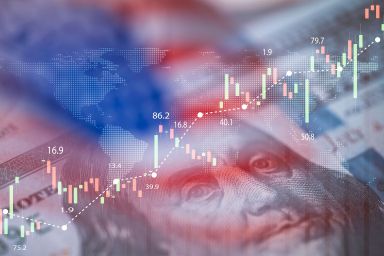
Why Michael Burry just sold all his tech stocks
Michael Burry has just exited a nearly $100 million position on Nvidia that he opened earlier this year.
14:42, 9 October 2025

Gold forecast: Third-party price targets
Gold (XAU/USD) is currently trading at $3,982.94 (as of 6:12pm UTC, 7 October 2025), after briefly crossing $4,000 per ounce for the first time during the session.
14:43, 9 October 2025

How does Elon Musk impact cryptocurrency prices?
In cryptocurrency markets, few individuals command as much attention as Elon Musk. The CEO of Tesla and SpaceX’s tweets, Tesla and Dogecoin announcements, and public statements can trigger periods of heightened volatility, with shifts in buying and selling pressure across digital assets.
13:29, 30 September 2025

ServiceNow stock split: what it means for traders
ServiceNow’s planned 5-for-1 stock split represents a notable adjustment to the company’s share structure. Understanding how stock splits work can help you interpret what this type of corporate action means for pricing, the number of shares in circulation and how accessible the stock may appear to different market participants.
15 hours ago

Intuitive Surgical stock split: what it means for traders
Changes to a company’s share structure can offer valuable insights when assessing how its stock has developed over time. In Intuitive Surgical’s case, several adjustments have accompanied its growth in the robotic-assisted surgery market, helping the shares continue trading at levels that remain accessible as the price has increased.
16 hours ago

Palo Alto Networks stock split: what it means for traders
Palo Alto Networks has completed several stock splits in recent years as its share price has increased, drawing interest from traders who track developments across the cybersecurity sector.
16 hours ago

Coca-Cola stock split: what it means for traders
Stock splits can influence how a company’s shares trade without altering the underlying business. For Coca-Cola, they form part of a long-running approach to managing how its share price is presented in the market.
17 hours ago

EU50 forecast: Third-party price targets
EU Stocks 50 (EU50) was trading around 5,721.0 as of 1:59pm (UTC) on 4 December 2025, within an intraday range of 5,687.4–5,729.9 on Capital.com’s platform. Prices remain close to recent Euro area benchmark levels, with related EU50 measures reported near 5,714.0 in early December.
18:14, 15 December 2025
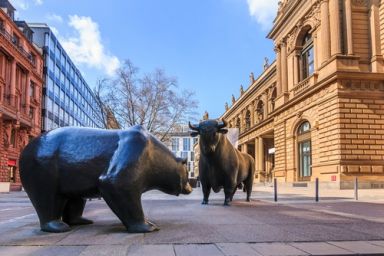
Market Mondays: How Policy and Valuations Are Shaping the Year-End Trade
US equities struggle to capitalise on the dovish FOMC meeting as the AI valuation concerns resurface.
10:54, 15 December 2025

Trading the Dow 30 as it Benefits from Rotation
Rotation out of AI and into value the name of last week’s game helping keep the Dow’s technicals positive, while in sentiment retail traders briefly flirt with majority short bias.
08:11, 15 December 2025

What are the top 5 most traded indices and why?
Global stock indices serve as key indicators of overall market performance, tracking the value of leading companies across major economies. Whether it’s the S&P 500, Dow Jones, Nasdaq-100, FTSE 100 or DAX 40, each index provides a distinct view of economic activity, sector dynamics and investor sentiment.
19:31, 11 December 2025
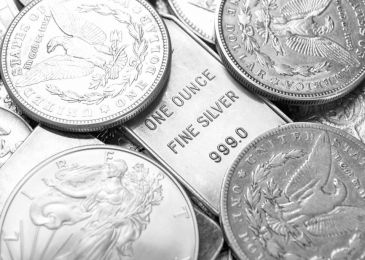
Silver price forecast: Third-party predictions 2025-2030
Silver spot is trading at $52.44 per ounce as of 16:41 UTC on 20 October 2025, within its intraday range of $51.12–$54.43.
18 hours ago
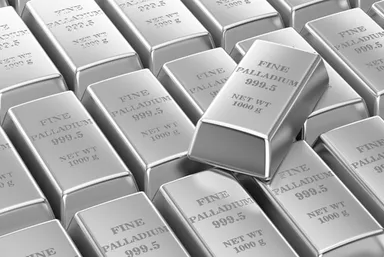
XAG/USD latest: Silver’s surge looks increasingly speculative
The recent rally in silver has been impressive but the technical picture shows signs of overexhaustion
22 hours ago

Market Mondays: How Policy and Valuations Are Shaping the Year-End Trade
US equities struggle to capitalise on the dovish FOMC meeting as the AI valuation concerns resurface.
10:54, 15 December 2025

Gold is sending a major economic warning
Gold prices have surged since mid August of this year, continuing an historic rally that began towards the end of 2023. Since then, gold prices have more than doubled.
15:50, 11 December 2025
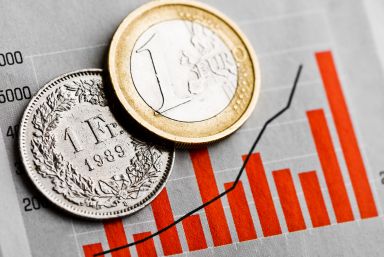
EUR/CHF forecast: Third-party price targets
EUR/CHF is trading around 0.93384 as of 11.28am UTC on 4 December 2025, within an intraday range of 0.93277–0.93430 on the Capital.com platform. The pair remains close to the levels seen in early December. Past performance is not a reliable indicator of future results.
16:46, 15 December 2025

Market Mondays: How Policy and Valuations Are Shaping the Year-End Trade
US equities struggle to capitalise on the dovish FOMC meeting as the AI valuation concerns resurface.
10:54, 15 December 2025

US Dollar Outlook: weakness driven by positioning, but the macro story isn’t broken
The US dollar faces downside pressure as positioning shifts post-FOMC meeting, but the structural drivers remain unchanged.
10:23, 12 December 2025

USD/TRY forecast 2026–2030: Third-party price targets
USD/TRY continues to react to shifts in Turkey’s economic outlook and wider global conditions, offering a clear view of how domestic and international factors interact across the currency market. Past performance is not a reliable indicator of future results.
16:07, 11 December 2025
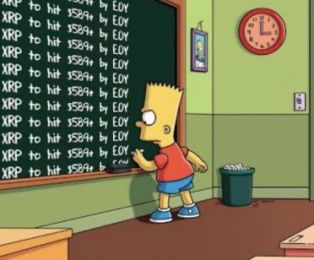
The Simpsons predicted XRP to hit $589: What’s behind the viral claim?
The link between The Simpsons and real-world events often resurfaces when online communities revisit past episodes for possible references or coincidences. XRP has recently been drawn into this discussion, leading some viewers to question whether the show ever hinted at a specific price level.
17:45, 12 December 2025

Bitcoin price prediction: Third-party outlook
Discover Bitcoin price projections 2025–2030 with third-party BTC forecasts, technical trends, price history, and CFD market sentiment.
16:44, 8 December 2025
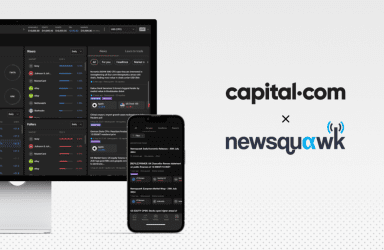
Discover Newsquawk: your integrated in-platform newsfeed
News moves fast — and so do the markets. With Newsquawk integrated into Capital.com, you can explore real-time headlines, detailed reports and tailored updates directly where you trade.
08:23, 5 December 2025

Top crypto traders to follow by social media popularity in 2025
Influencers, analysts and developers use digital platforms to exchange ideas, interpret market trends and discuss the development of digital assets. As their audiences grow, these voices increasingly shape how information spreads and how trading discussions evolve across communities.
15:11, 1 December 2025
